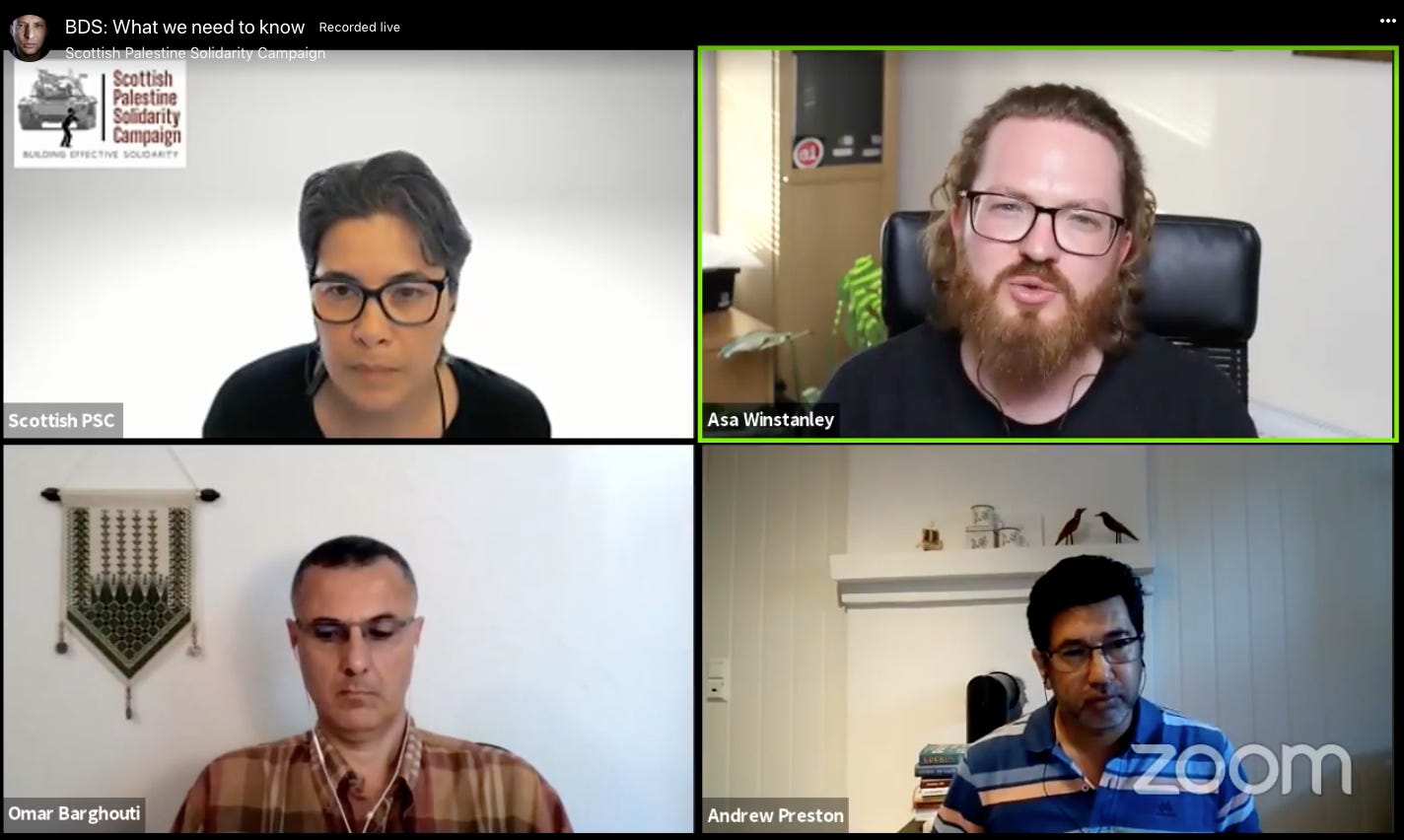Issue #13 - Palestinians are allowed to defend themselves
Why do so many in the West assume Palestinian armed force is illegitimate?

When you think about it, the hypocrisy over the issue of Palestine in the West is really quite staggering.
Palestinians are slandered as “terrorists” for exercising their internationally recognised right to defend themselves using armed force. But additionally, any method Palestinians use to resist is similarly attacked and delegitimised. BDS and other forms of non-violent struggle are defamed as “anti-Semitic”, for example.
Inside “Israel” and in the other occupied Palestinian territories, the Palestinian flag is deemed an existential danger to Jewish existence. Watch any one of the many Palestinian videos coming out of demonstrations in east Jerusalem to see that. Israeli army thugs make a habit of violently snatching away Palestinian flags, as if they were some sort of threat to state security.
And yet, despite Israel’s many crimes, it is the Palestinians who are constantly talked down to, lectured and doubted. Why is it that there is more outrage in British and American political culture over a popular Palestinian slogan calling for equality (“From the River to the Sea, Palestine will be free”) than for the popular Israeli slogans (“Death to the Arabs,” “May your village burn”) calling for genocide?
This is all by way of preamble to for me to recommend this week that you read three important recent articles by my colleagues at The Electronic Intifada which address the double standards in US and British political culture over this issue.
Maureen Murphy wrote the first piece, demanding our politicians stop punishing Palestinians for resisting their dispossession. It it, she explains how the US and Israel are plotting to use the most recent destructive war against Gaza for their own ends:
Antony Blinken, the US secretary of state, said that “if we do this right, reconstruction and then relief for the people of Gaza — far from empowering Hamas — has the potential to undermine it.”
Israel also sees opportunities to advance its interests by imposing political conditions on humanitarian aid.
Its foreign ministry has suggested that it would use access to aid as leverage against the International Criminal Court’s investigation of war crimes in the West Bank and Gaza.
The ministry said working groups would be established to implement “civilian projects in Judea and Samaria” – the term Israel uses for the West Bank – “while simultaneously setting out demands [on] the Palestinians, including ceasing petitions to international institutions and stopping incitement.”
Maureen explains how such efforts will ultimately prove fruitless in their quest to compel Palestinians to surrender to their dispossession and elimination — although such efforts will no doubt extend the suffering.


The other two pieces you should make sure to read are by my colleague Ali Abunimah. Ali addressed recent unfortunate statements by Congresswoman Ilhan Omar, who in the past has at times been fairly good on Palestine.
Unfortunately, Omar made some rather ill-considered statements drawing an equivalence between Israeli terrorism and settler-colonialism (“democracy” — what a bad joke) and Palestinian efforts to resist Israel’s crimes. Ali explains why Omar’s statements were so misguided, and why Hamas and its armed resistance should not be demonised.
The final piece on my recommended list this week is Ali’s follow-up report on the same issue, that of Ilhan Omar’s comments. A Hamas spokesperson criticised her, citing no less an authority than the first democratically elected president of South Africa:
[Hamas spokesman Basem] Naim said that Palestinians “have the right to resist the Israeli occupation with all means possible, including armed resistance.” He quoted Nelson Mandela’s statement that “it is always the oppressor, not the oppressed, who dictates the form of the struggle.”
My work this week
In our latest episode, Max Blumenthal returns to The Electronic Intifada podcast for a wide ranging conversation about several different issues. We start with his recent article about how pro-Israel groups and individuals fabricated a “wave” of anti-Semitism in the US to distract from Israel’s slaughter in Gaza. Max explains what his investigations uncovered. You should definitely read the full piece too.
We covered topics ranging from Syria, and how that issue divided the Palestine solidarity movement, the true history of Nazi-Zionist collaboration, and the campaign by the “NGO wing of some element of Palestine solidarity on Twitter to basically apologize for a wave of anti-Semitism that didn’t exist.”

This was a particularly enjoyable episode, so make sure to catch it. And if you want more, you should listen to episode 281 of The War Nerd podcast. Max dives into the military realities on the ground in Gaza. He gives a really brilliant analysis, which is well worth a listen.
In my latest MEMO column, I point out the sheer double standards which dominate in the Western media coverage of Palestine. Why do Israel’s “Death to the Arabs” incitement mobs get a free pass?
Media appearances and talks
By Any Means Necessary — Sean Blackmon and Jacquie Luqman brought me onto their brilliant Radio Sputnik show once again. My segment starts at timecode 00:23:38:
In the second segment, Sean and Jacquie are joined by Asa Winstanley, investigative journalist and Associate editor with The Electronic Intifada, to discuss the swearing-in of new Israeli Prime Minister Naftali Bennett, Bennett’s history of bragging about killing Arab people, and why the inclusion of an Arab party in the new coalition seems to have been driven mainly by political expediency.
I was invited by the Scottish Palestine Solidarity Campaign to talk on this panel about the BDS movement. I focused on the political background in the UK. BDS movement co-founder Omar Barghouti explained the current state of the BDS campaign overall, while Andrew Preston talked about BDS struggles in Norway. You can watch the whole meeting back on Facebook.
Tweet of the Week
Zionism is racism.







